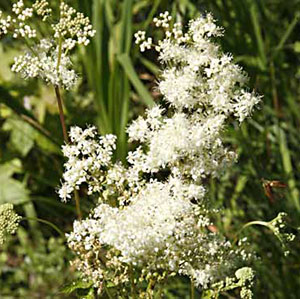Typically Ships in 1-3 Days
Meadowsweet Dye Seed Pack / Black
Couldn't load pickup availability
Clusters of creamy-white sweet-scented flowers top very thin, yet stiff stems, making them look like they are suspended in the air.
The fern-like foliage makes this a very ornamental herb for the garden.
Contains one of the original sources of salicylic acid, synthesized to make aspirin.
The roots produce a black dye when combined with a copper mordant.
Description
- Scientific Plant Name: Filipendula ulmaria
- Common Names: Queen of the Meadow, Mead Wort, Meadow Queen, Dollof, Meadsweet and Bridewort
- Plant Type: Perennial
- Height @ Maturity: 3 - 6'
- Packet Weight: ~10g
Growing Tips
- Best in full or partial sun.
- Tolerates clay soils.
This plant is listed as a noxious weed in one or more states. Please check with your local agricultural extension office before growing under conditions that could lead to dissemination.
NOTE: Certain U.S. states do not permit the growing of some of these seeds, viewing them as "invasive." Please adhere to the regulations in your area.


